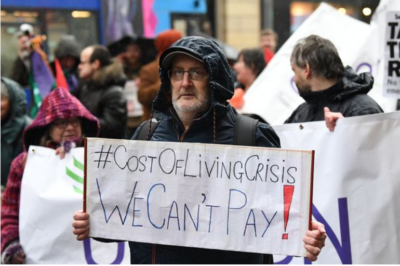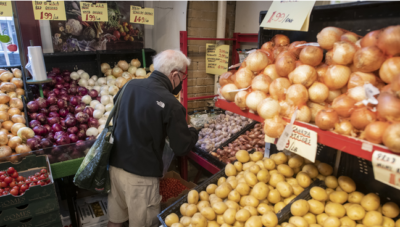 By Paul Hanson
By Paul Hanson
September 13th, 2023
BURLINGTON, ON
Have you ever wondered why your money won’t just go as far as it did before the pandemic? We get told it’s due to massive, unforeseen events that are out of control of every day people: the war in Ukraine, COVID-19, Brexit; the list could go on and on. But once these large disruptions in the global order of things have occurred, how do the shockwaves propagate out through the rest of society?

The cost of living is hitting everyone – solutions are not clear yet.
The truth is that each and every one of us, to a tiny, but not vanishingly small degree, are playing a part in this. Don’t mistake this analysis for an attempt to blame the victim, or to say that you should be doing more to support the economy; this is not what’s being said here at all. Rather, we talking about the small shifts in behaviour consumers are making as a result of the cost of living crisis, and how these seemingly small acts can have a profound affect on the wider economy.
Learning from a trip to the cinema
Let’s consider, for a moment, the prospect of asking your boss for a raise. Imagine you work at a cinema, you want your wages to go up to cover the increased cost of food and fuel. This is a perfectly reasonable thing to want, especially in the present situation, but your boss still declines your request. She tells you that her business is struggling because of more and people staying at home — they simply have less money to spend on leisure activities like sitting in front of the big screen for a couple of hours on a Sunday afternoon.

Cutting screening subscriptions is a choice many are making.
She can’t afford to give you a pay rise until business picks up again, but business is unlikely to pick up unless people have more money to spend. Do you see how this quickly becomes a vicious circle? And that’s before we’ve even broached the fact that many people are reducing the number of streaming subscriptions they have, let alone considering spending precious disposable income on a 2-hour trip to the local cinema.
But the cinema is an outdated form of entertainment, you say. Think again, it goes far deeper than that…
Understanding the true cost of lunch out in town
As a whole, we’re spending less on food on days out with the family, as well as on evening meals on the weekends to enjoy a break from the kids. Again, in times where money in the household budget is constrained and wages drop in real terms, this is a perfectly prudent thing for everyone to do. The problem is it doesn’t help the cafes, bars and restaurants who have to pay the staff whose household bills and living expenses continue to rise.
Taking a packed lunch and enjoying a picnic, rather than stopping in at your favorite cafe, may feel like a smart thing to do because it saves you money in the immediate future. But what about the knock-on impact to the rest of the economy? If more and more people start doing it, there’ll be less work for the catering and hospitality sectors, which means less money for the people who rely on them for their livelihood.

Soaring food prices are hitting everyone.
But my eating habits don’t really have any impact, you say. How about another key area many of us are cutting back on?
Seeing the impact of the staycation
Short weekends away nearby rather than lengthy foreign holidays are becoming more and more common during the cost of living crisis, and again, this is perfectly understandable. The problem is that while it keeps money in your pocket so you can cover your urgent expenses and outgoings, it will hit the tourist industry hard.
At the heart of it we’re not really talking about the abstract idea of an ‘industry’ making less money, we’re considering how consumer spending shifts result in less money to pay staff. Wages stay low, fewer people purchase products and services, running costs increase and the vicious cycle continues.
Final Thoughts

A summer picnic is a lot less than a familty dinner in a restaurant.
Many of us are turning to more affordable, cost-effective ways to enjoy our free time. YouTube is a free alternative to Disney+ and Paramount, picnics in the park are kinder to the budget than a meal out, and things like free casino games or free online bingo are becoming increasingly popular ways to play instead of playing for real money.
While this helps us stretch our household budget further that week, the impact on the economy is far wider and longer lasting. This shouldn’t be pure doom and gloom though: these types of patterns in the economy are always cyclical. Opinion may be split on when the upturn will begin, but history shows it always does.
Be patient, prudent and kind and we will all get there.



















